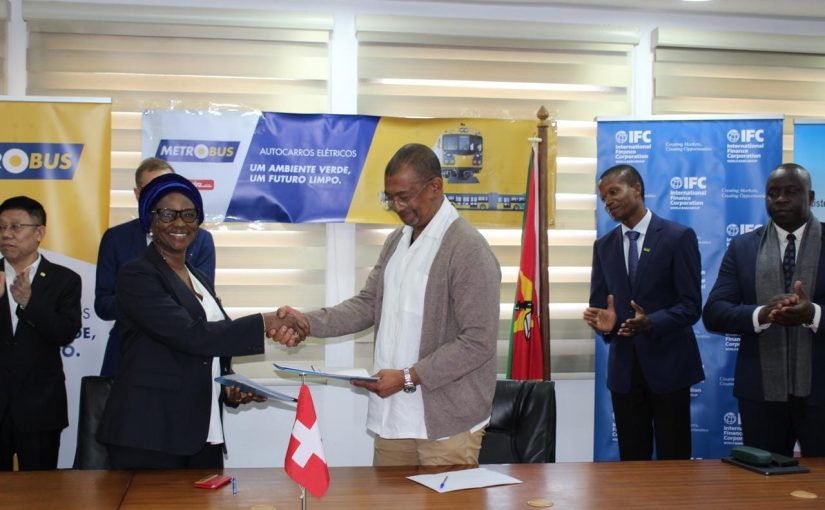Mozambique: Shareholders must declare company ownership - AIM
Electric buses: Maputo set to see its first 10 in October

Photo courtesy: MetroBus
The International Finance Corporation or IFC, the private sector arm of the World Bank Group, is supporting Maputo passenger transport company MetroBus in transitioning to electric buses, the first ten of which are expected in October.
According to information provided this Thursday (20-06) by MetroBus, which operates public passenger transport in the Maputo Metropolitan Area, the company and IFC on Wednesday signed an agreement which provides for the acquisition of 300 electric buses and installation of the necessary charging network by 2025.
In addition to the first ten 18-metre electric buses slated to enter service in October, MetroBus plans to take delivery of another ten in February of next year.
“IFC will support MetroBus in preparing a viable business plan to expand its transport services to meet growing demand in the Maputo Metropolitan Area and transition its operations from fossil fuel-powered vehicles to e-buses,” the company says.
MetroBus says it “plans to transition its fleet of diesel-powered buses, which are polluting and expensive, to more environmentally friendly buses, with electric propulsion and zero-limited greenhouse gas emissions”, and “expand its operations to serve new routes.”
“To achieve its growth ambitions, MetroBus is preparing investment plans for electric buses and the necessary charging infrastructure,” it explains.
The information from MetroBus notes that the “Maputo Metropolitan Area is expected to register an increase in its population from around 2.5 million residents in 2023 to around 4.5 million in 2035”, a population trend “which will lead to greater demand for more efficient public services, especially in the transport sector”.
The Mozambican government plans to begin decarbonizing transport in the Greater Maputo area by 2030, focusing on gas and electric vehicles, according to the Energy Transition Strategy (ETS), which Lusa reported in February.
The document recalls that Mozambique “heavily depends on imported fuels” to supply the transport sector, with a “negative impact on the balance of payments”, exposing the country “to exchange rate and price fluctuations”, in addition to carbon dioxide emissions.
“In 2020, 100% of diesel and gasoline used in transport were imported, at a cost of US$482 million (€449 million), equivalent to 8% of that year’s imports and 3% of GDP. The transport sector is responsible for 84% of domestic consumption of fossil fuels,” it explains.
The new strategy, which foresees investments of around US$80 billion (€73 billion) until 2050, foresees, in one of its plans, “the transition to public transport modes” in metropolitan areas, including mass transport such as light rail, overhead rail systems and bus rapid transit (BRT), starting with the Maputo metropolitan area.
“In the short to medium term, compressed natural gas will be used as a transition fuel as systems and volumes gradually shift to grid-powered renewable modes. In road transport, the transition from diesel/gasoline in the private transport of passengers and goods implies a transition to biofuels (as transition fuels) and electric vehicles,” it explains.
The decarbonisation of urban transport will begin by 2030 in Maputo, “with the introduction of BRT and other mass public transport, and with 15% of public transport using cleaner energy sources, instead of diesel”. Between 2030 and 2040, “this value will rise to 50% of urban public passenger transport in the Greater Maputo area, while the share in the north/centre rises to 15% and in the remaining urban centres in the south of the country to 7.5%”.













Leave a Reply
Be the First to Comment!
You must be logged in to post a comment.
You must be logged in to post a comment.